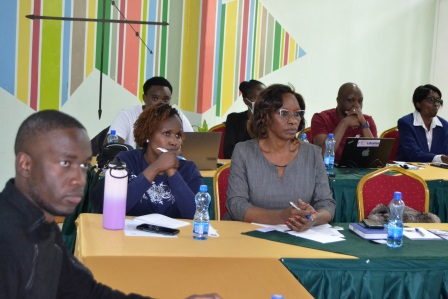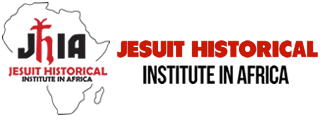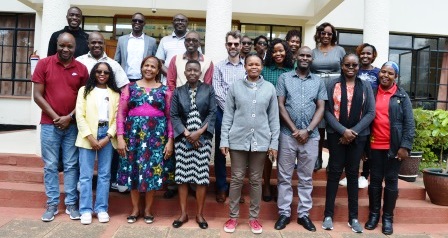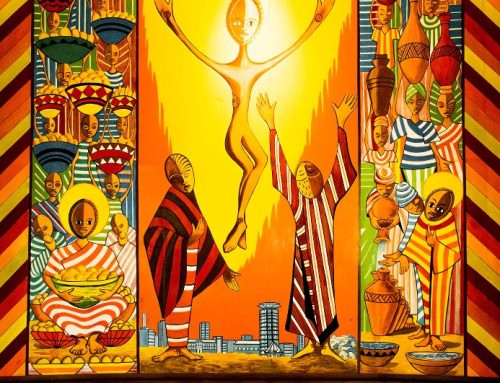The 6th Librarians and Archivists Gathering was held at Pan Africa Christian (PAC) University on the 2nd of May 2025, drawing together information professionals from 14 religious institutions, with a total of 23 participants. JHIA and PAC University came together to organize the event, both working to improve archiving and library practices from an African context. Under the theme “Empowering Communities: Practical Steps for Sustainable Archiving and Cultural Preservation,” the workshop offered a chance for those working in archiving and preservation to share their experiences.
Josleen Soita, as the University Librarian at PAC University, was in charge of the gathering which began with a prayer led by Tangaza University’s Chief Librarian, Risper Ndinda. Josleen introduced the group and noted why working together is essential for bringing sustainable development to archives in shared communities.
Kyama Mugambi, Assistant Professor of World Christianity at the Yale Divinity School offered a background to the Gathering of Librarians and Archivists, emphasizing the need for such forums to discuss the strategic role of information professionals in preserving cultural memory. He then invited the Deputy Vice Chancellor for Academic Affairs and also the chair of the Library Committee at PAC University, Prof. Diphus Chemorion, to deliver the official welcome address.
Prof. Chemorion traced the history of PAC University, founded in 1978 as a Bible College but then it grew like any other faith-based institution and was chartered as a university in 2008.

PAC Unversity is owned by Christ Is The Answer Ministries (CITAM), The University currently offers diverse courses through schools of theology, business and technology, social sciences, humanities and a graduate school. The student population is 4,000 students and the institution prides itself as a university that emphasizes both online and physical learning. The institution embraces a blended learning model—60% physical and 40% online—to cater to a diverse student population across different religious and cultural backgrounds.
He stressed in his comments that it is especially vital to record indigenous knowledge during the current period of artificial intelligence. Good results from AI come from accurate and documented data. Without African realities in documentation, there is a risk that we won’t be acknowledged in future technology developments, he noted. He pointed out that archives and libraries are vital for storing information needed by those who write history, as they trust these places for authentic and local history accounts. “This idea has occurred to me: we really need to record what indigenous communities know. Consequently, the main topic is especially relevant at this time”.
Prof. Chemorion also pointed out how AI is affecting the way archives function. While recognizing all the good that AI can do, he cautioned people not to rely too heavily on technology. Instead, he urged officials to ensure that new tools make people smarter, not replace their ability to think by relying on librarians to provide help.
Dr. Scott Libson, the main presenter of the day and a Special Collections Librarian at Yale Divinity School, offered practical guidance under the theme “Empowering Communities: Practical Steps for Sustainable Archiving and Cultural Preservation.” He emphasized that archiving begins with personal and community responsibility—encouraging individuals to identify, preserve, and describe their records systematically. From diaries and emails to photographs and memorabilia, he highlighted the value of everyday materials as part of the historical record. Dr. Libson provided detailed steps on organizing archives, safe storage practices, and digital preservation strategies—such as the 3-2-1 rule (three copies, two formats, one off-site)—to ensure long-term accessibility.
Beyond the technical, Dr. Libson engaged with the cultural and ethical dimensions of archiving. Drawing from global examples and scholarly perspectives, he challenged participants to rethink definitions of heritage, especially in postcolonial and African contexts. He advocated for a broader, inclusive understanding of archives—one that embraces oral histories, memory cloths, rituals, and other non-traditional records. Librarians and archivists, he argued, have a responsibility to support community-driven archives and develop mission statements that center the lived experiences of underrepresented groups. By doing so, they do not merely preserve materials—they uphold dignity, identity, and justice.
Participants largely observed and discussed the persistent issue of poor records handling across institutions. A common concern raised was the widespread practice of dumping valuable records in building basements—a phenomenon particularly prevalent in institutions of higher learning and government offices. This neglect compromises the integrity and accessibility of important historical and administrative information. The gathering also highlighted broader challenges facing the archiving sector: lack of formal policies, underfunding, absence of trained personnel, and minimal institutional support. It was observed that Africa still relies heavily on collective memory and oral traditions, which—though culturally rich—are fragile in the absence of proper documentation.
One of the key recommendations from the gathering was the establishment of Records Management Committees and Records Centres or Registries in every institution. These structures would not only ensure compliance with archival best practices but also enhance institutional memory and accountability. The event concluded with the announcement that the 7th Librarians and Archivists Gathering will be hosted by the Adventist University of Africa, with additional details to be communicated in due course.
By Geoffrey Obatsa
Jesuit Historical Institute in Africa



